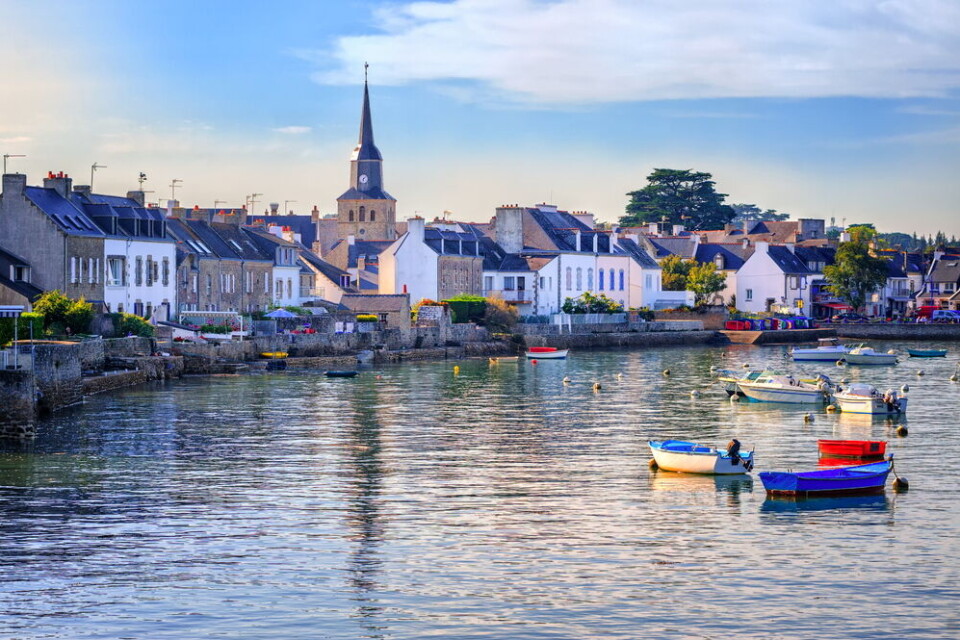-
Farmer protests block motorway entrances and major roads in south-west France
Ongoing action comes in response to culling of cattle affected by contagious Lumpy Skin Disease
-
Many parcel collection points in France are overwhelmed as Christmas approaches
Heavy customer traffic leaves some struggling to cope
-
Warnings issued over connecting to public WiFi networks in France
Lack of encryption and risk of connecting to ‘fake networks’ leave users at risk of hacking attempts
Brittany is the region which has most newcomers in France
A quarter of new arrivals come from the Paris area. Britons remain most numerous foreign group

Brittany is the most attractive region in France for people moving from elsewhere in the country, a new study shows - with more than a quarter of arrivals coming from the Paris area.
The study by national statistics bureau INSEE (Institut national de la statistique et des études économiques) found that Brittany in the northeast, and Nouvelle-Aquitaine in the south-west, have the highest number of migrants of any region in the country.
The study showed that in one year (in 2019), Brittany had 71,000 people arrive and 49,000 leave, for a net migration number of 22,000.
As of January 1, 2020, the report said that Brittany has 3,373,800 inhabitants in total.
Paris ‘exodus’
Of these newcomers, 27% (19,100) were originally from Ile-de-France, the study showed.
This is more than the two neighbouring regions of Pays-de-la-Loire (13,700 new arrivals) and Normandy (6,500 new arrivals).
This included only people who moved their main residence, and not second-home owners (which can account for up to 80% of homes in some areas of Brittany). A third of second homes in Brittany are owned by people from Paris.
Read more: Eight key takeaways from French study into second homes in Brittany
Read more: Second-home protests in Brittany: 'But we buy homes French don't want'
This figure could even be an underestimate, as the study examined figures from before the pandemic, when migration from Paris to more rural areas skyrocketed due to lockdown and more people working from home.
Foreign arrivals
The figures show that in 2019, more than 10,000 people from abroad settled in Brittany.
Of these, 500 were of British nationality; the largest single group. The exception here was among students, with British students representing just 1.7% of the total.
The next-most numerous group were Romanians (400 arrivals).
The largest percentage of new arrivals are of French nationality (46%), while 22% have European Union nationality. 18% are from Africa, and 10% from Asia.
And while 12.3% of new arrivals to Brittany came from abroad, this figure is actually one of the lowest in mainland France, showing that the region is still generally more popular among people from France, rather than elsewhere.
New arrivals of foreign nationality typically have ‘low activity’, with an unemployment rate of 40.7% among the working-age population.
However, of those who do work - both among foreigners and French people who come to Brittany - managers and higher intellectual professions, and intermediate professions are over-represented (making up 33.4% and 31.4% of employed newcomers respectively).
‘Golden years’ in Brittany
In terms of demographics, older people (those over 60) and younger people (aged 20-24) are most likely to come to Brittany if they move regions in their older age. Along with Corsica, the region is the most attractive for retirees aged 60-64. A majority of those who go to live in Brittany choose Morbihan.
Yet, most people who arrived in the region were of working age; only 7% of new arrivals in 2019 were retired (but three quarters of these retirees were of French or British citizenship).
Young people and returnees
Younger people also arrive in droves to Brittany; but they are also the most likely to leave again, largely due to their studies and later work.
However many of the young people who leave are also likely to return later on; INSEE shows that one in five ‘new arrivals’ were actually born in the region, especially those aged 25-34, who "return to their region of origin after studies or their first job”.
These returnees generally go to the cities of Rennes, and Brest.
Related articles
10 Breton phrases to take with you to Brittany
The Brittany island that refused to switch from summer time
Largest ever Brittany flag displayed in call for more local power
























